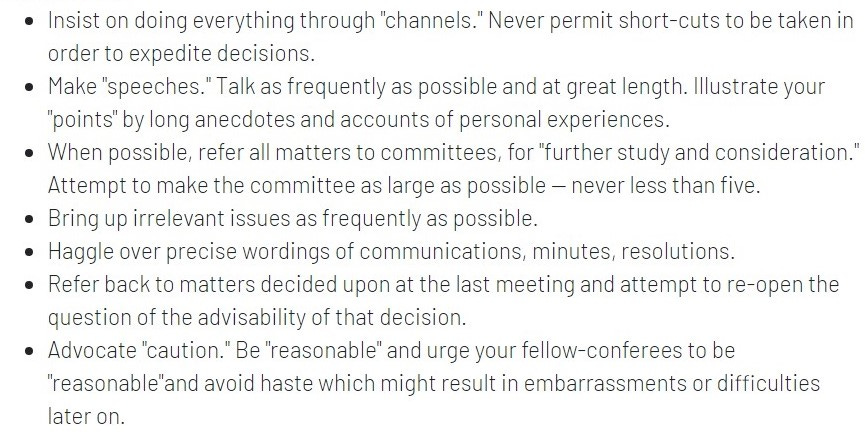40 Useful Concepts (Spring 2023)
Ideas to help you make sense of the world
While researching articles, I encounter too many interesting concepts. I don’t have enough years in my life to write an article about every one, so I seasonally curate them into lists. This is the spring 2023 list (the winter 2022 edition can be found here.)
In a world drowning in text, I’m a big fan of concision, so I’ve aimed to summarize each concept into tweet-length paragraphs. Most of these are new, but a couple have been taken from previous lists or my articles, as I felt they deserve a wider audience.
Obviously, these lists aren’t intended to give you a comprehensive view of each concept, but rather to offer its essence to provoke curiosity and hopefully prompt your own research. So please, regard each entry in this list not as a complete explanation but as an invitation into a fascinating rabbit hole.
The List
1. Dysrationalia:
Just because someone is intelligent, doesn’t mean their intelligence is pursuing intelligent goals. It’s possible to devote a genius-level intelligence to justifying idiotic opinions and behaviors. Tragically, a common fate of intellectuals.
2. Opinion Shopping:
Many who conduct research online ignore every source they disagree with till they find one they agree with, and then use this source as an authority to justify what they already believe. They don’t consider someone an expert unless they agree with them.
3. Grice’s Razor (aka Principle of Charity):
Most people are bad at expressing themselves, so don’t interpret their words literally, but rather by what they are most likely to mean. What they are most likely to mean is whatever the best possible interpretation of their words is.
4. The Opinion Pageant:
The rise of social media as the primary mode of interaction has caused us to overvalue opinions as a gauge of character. We are now defined more by what we say than what we actually do, and words, unlike deeds, are cheap and easy to counterfeit.
5. Godwin’s Law:
As an online discussion grows, the probability of a comparison to Nazis or Hitler approaches 100%.
Many people are quick to compare things to Nazi Germany because it’s the only history they know.
6. Limbic Capitalism:
Capitalism needs us to keep buying, and the best way to keep us buying is to get us addicted—to food, drugs, porn, news. Our brains are being violently overstimulated as businesses compete to obsess us; the market is slowly turning us into mindless dopamine-junkies.
7. Audience Capture:
Nikocado wanted to blow up online, so he did what got him the most views: eating all he could. He certainly blew up, but not as intended, finding fame as a grotesque caricature of himself.
Self-caricaturization awaits any influencer who seeks engagement at all costs.
8. Ragebait:
The easily outraged are easily manipulated. If you can’t control your emotions, other people will.
Prevent the puppeteering of your passions by postponing your reactions; if a post enrages you, pause, and consider if it was created specifically to enrage you.
9. Deferred Happiness Syndrome:
The common feeling that your life hasn't begun, that your present reality is a mere prelude to some idyllic future. This idyll is a mirage that'll fade as you approach, revealing that the prelude you rushed through was in fact the one to your death.
10. Path Dependence:
The QWERTY keyboard layout was a misguided attempt to stop typewriters jamming, but, despite being inefficient for typing, it’s endured into the digital age, because we all just accepted it as the norm.
We become blind to so many problems because we let them become part of life.
11. Golden Mean:
Good character is not about maximizing virtues but moderating them: to be sensitive without being fragile, confident without being cocky, steadfast without being stubborn, driven without being reckless, focused without being obsessed.
12. Danth’s Law:
If you have to insist that you've won an argument, you've probably lost badly. This is because insisting that you won is a sign of rampant ego, and ego is the greatest obstacle to reason.
13. Idiocy Saturation:
Online, people who don't think before they post are able to post more often than people who do. As a result, the average social media post is stupider than the average social media user. Worth remembering whenever online dumbassery drives you to despair.
14. Weber–Fechner Law:
Each bottom square contains 10 more dots than the one above. This is noticeable when the dots are few (left) but not when they're many (right). This blindspot is why you don’t care about saving $100 when buying a house but you do when buying a shirt.
15. Scoreboard Principle:
Metrics motivate. Quantifying your progress on a task will push you to work harder, as it’ll become like a game in which you’re trying to increase your score. Find ways to number your progress, and you’ll become determined to make the numbers grow.
16. Bandwidth Tax:
Being poor is expensive; constantly managing scarce resources requires such mental effort (intellectual and emotional) that there’s little brainpower left for anything else. Thus, poverty makes it hard to escape poverty.
17. Bullshit Jobs (actual name):
Most modern jobs are meaningless, with the majority of labor yielding no tangible real-world impact. The aimlessness of work leaves people unfulfilled, and, since one’s job is considered one’s identity, it also costs them their self-worth.
18. Anna Karenina Principle:
There are many ways to be wrong but only one way to be right. As such, truth is fragile; a minor accident can make it false. But lies are tough; they seldom accidentally become true. Truth is therefore highly perishable and must be actively preserved.
19. Shaker's Law:
Those who announce their departure from an online discussion almost never actually leave.
20. Pretty Privilege:
Beautiful people are generally treated much better by society than people who are simply white or male, yet activists raucously attack white privilege and male privilege while ignoring pretty privilege, making them guilty of pretty privilege privilege.
21. Purposeful Stupidity:
In 1944, the OSS (now known as the CIA) published a field manual laying out strategies to stealthily sabotage a society from within. The tactics described are eerily similar to what passes for normality today.
22. Deep Time:
Cleopatra lived closer in time to the creation of Twitter than to the creation of the Great Pyramid. The T-Rex lived closer in time to us than to the Stegosaurus. These facts are counterintuitive because our puny minds cannot grasp the vastness of geologic time.
23. Longevity Risk:
Most people don’t prepare for the possibility that they may live a long time and spend many years being unable to adequately take care of themselves. They undersave money, fail to arrange for their own care, etc. Don’t worry about dying, worry about living!
24. Oppression Olympics:
Social media is a war for public sympathy, so victimhood is a status symbol that many compete for by collecting injuries real & imagined, often goading others into attacking them so they can screenshot/record it and thereby immortalize their prestigious oppression.
25. Tarzwell's Razor:
Emotion is an indicator of bias. The more emotional you feel, the less you should trust your judgment. Awkwardly, people are most motivated to tweet when emotional, meaning people pass judgment most when their judgment can be trusted least.
26. Dark Forest Theory:
The Fermi paradox suggests the galaxy should be teeming with aliens, yet there’s no sign of any. It may be that any civilization that makes too much noise gets discovered & destroyed by a galactic predator. Curiously, our civilization is getting louder...
27. Presentism:
We judge history by modern standards. We regard slave-owners as evil, but slavery was so common & familiar to our forebears that they were blind to its iniquities, as we are to the industrial slaughter of animals (for which we too will eventually be called evil.)
28. Cylindrical Perspective:
From one angle, the shape is a circle. From another, it’s a square. People on either side argue over the true shape, each convinced that the other is wrong, because social media rewards us for arguing in 2D about 3D issues.
29. Teletransportation Paradox:
Someone creates a perfect replica of you, identical down to every atom. Would you suddenly inhabit 2 consciousnesses, simultaneously seeing through 2 pairs of eyes, or would the clone be someone else altogether? Either possibility is bizarre.
30. Firehosing:
In the past, the purpose of disinformation was to convince you of a single narrative. In the digital age, the purpose of disinfo is to overwhelm you with many contradictory narratives until you start to doubt everything and become confused, demoralized & passive.
31. The Fourth Turning (aka Strauss-Howe generational theory):
The idea that history is not linear but helical, because civilization has its own seasons. As the famous quote by G. Michael Hopf goes:
“Hard times create strong men,
Strong men create good times,
Good times create weak men,
Weak men create hard times.”
32. Enthymeme:
The best propagandists convince people of a lie not by stating the lie directly but by making statements that tacitly assume the lie as a premise. A mistruth deduced in one's own mind is much harder to guard against than one that enters fully formed from elsewhere.
33. Purva Paksha:
To truly understand an opposing view, try to argue in favor of it as best you can. This will prevent your tribal brain from reflexively dismissing it as an “enemy ideology”, and force you to genuinely consider its merits.
34. Arrival Fallacy:
We didn't evolve to be happy, but to believe we'll be happy if we just accomplish the latest goal. So we seldom taste true joy, but we often pick up its scent—just enough to keep us in pursuit. Paradise is not a destination, or even a journey, but a horizon.
35. Law of Accelerating Returns:
For 300,000 years, humans didn’t have computers. Then, in less than a century, we invented PCs, the web, smartphones, and generative AI. New discoveries facilitate newer discoveries, so technological progress is not linear but exponential.
36. Russell's Teapot:
Believing things because they haven't been disproven is madness, as it would require believing there’s a teapot orbiting the moon. Eliminate Russell’s Teapot with Hitchens’ Razor: “What can be asserted without evidence can be dismissed without evidence.”
37. Gurwinder's Defibrillator (to restart your heart when you’re out of empathy):
Everyone is an ape adrift in an alien world, born into a struggle they did not choose, bullied by impulses they cannot control, searching for answers they will not find, and condemned to a fate they do not deserve.
Go easy on them.
38. Focusing Illusion:
Focusing on an issue causes it to take up extra space in your head, making it seem bigger & badder than it actually is. In truth, almost nothing in life is as bad as your mind portrays it. As Seneca said, “We suffer more in imagination than in reality.”
39. The Spyglass Self:
We develop our identities by glimpsing ourselves through others' eyes, imagining how they see us, adjusting ourselves accordingly. Since personality is a performance in the limelight of another’s gaze, we cannot be someone without someone to be someone for.
40. Feynman’s Razor:
If you can’t explain something to a child, you don’t understand it yourself. This is because it's only when you fully grasp a topic that you can distill it down to its essence. I write these lists for anyone to understand, which helps me to understand.
Thanks for reading. If you wish to see what people on Twitter are saying about these concepts, or if you’d like to do me a favor and share it on the hellsite, you can do so here:









Liking Gurwinder’s defibrillator. Hello fellow apes!
*Since personality is a performance in the limelight of another’s gaze, we cannot be someone without someone to be someone for.* - Wow, this is disturbingly profound!